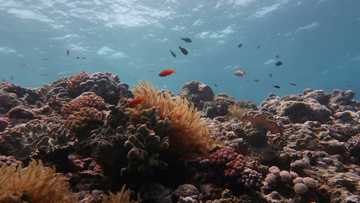Namibia Transforms Sewage into Drinkable Water to Solve The Country's Water Crisis
- Namibia's capital, Windhoek, has had difficulty providing its population with drinkable water due to an acute water shortage
- To combat its water problem, Windhoek is treating sewage water and transforming it into clean, drinkable water
- After the water is treated, it is directly injected into the city's water distribution system for usage and consumption
New feature: Check out news exactly for YOU ➡️ find “Recommended for you” block and enjoy!
Namibia is one of the driest nations in Africa. The amount of water that evaporates is 83%, and the country does not have a river that passes through it. To combat this problem, the Goreangab Water Treatment Plant in Windhoek transforms sewage into drinkable water for its residents.

Source: Twitter
Namibia joins Singapore as the only two countries that utilize their waste water to create drinking water, which is pumped back into the home's water supply system.
Goreangab Wastewater Treatment Plants' Process Engineer, Justina Haihambo, explained that:
Consuming drinking water from a wastewater recycling plant is an idea that still sometimes bothers some people, even in Windhoek where the solution is proven and very reliable. It’s important to know that everything is done biologically: bacteria help digest waste and extract it from the water, mimicking what happens in nature, but much faster
PAY ATTENTION: Enjoy reading our stories? Join YEN.com.gh's Telegram channel for more!
This system is anticipated to continue providing clean drinking water for several decades because the new plant is even more efficient regarding the quantity and quality of drinking water produced. Goreangab's Process Engineer further added that in the past 50 years, no significant health incidents associated with the consumption of this water had been discovered.

Source: UGC
The trial inspired 500 people's wastewater to be collected in vacuum sewers and processed to get rid of all pathogens. The company is also considering building a second facility to turn wastewater into drinking water.
The company uses state-of-the-art technology for recycling wastewater.
Work Comes to a Stop at $278 Million Kumasi Central Market Project as Workers Protest Over Poor Working Conditions.
In an earlier article, YEN.com.gh wrote about how workers of the $278 million Kumasi Central Market project are unsatisfied with working conditions and have halted work until their demands are met.
The construction of the market costs about $278 million and is intended to enhance socio-economic development, economic growth and tourists.
New feature: Check out news exactly for YOU ➡️ find "Recommended for you" block and enjoy!
Source: YEN.com.gh



